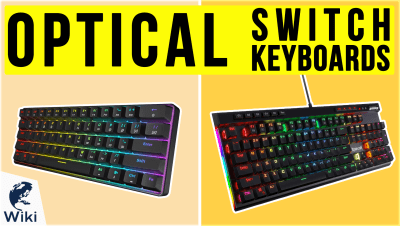11 Sci-Fi Books With Ominous Visions Of The Future
Great Sci-Fi manages to walk the tightrope of having believable characters and situations while introducing the reader to fantastic new worlds and wildly inventive ideas. These picks paint vivid pictures of dark futures that feel real because the characters retain their humanity through dangerous and sometimes apocalyptic situations. If you're looking for something more surreal, try this list of the best fantasy books. When you click links from this website, we may receive advertising revenue to support our research. This video was made with Ezvid Wikimaker.
11 Sci-Fi Books With Ominous Visions Of The Future
- "Gone" by Michael Grant
- "The Peripheral" by William Gibson
- "Hyperion" by Dan Simmons
- "Illuminae" by Amie Kaufman and Jay Kristoff
- "The Body Electric" by Beth Revis
- "LIFEL1K3" by Jay Kristoff
- "The Abyss Beyond Dreams" by Peter F. Hamilton
- "Binti" by Nnedi Okorafor
- "Pushing Ice" by Alastair Reynolds
- "Ancillary Justice" by Ann Leckie
- "Ender's Game" by Orson Scott Card
William Gibson On Sci-Fi And The Future
In Depth
From time travel to space adventures, science fiction novels take readers to new worlds, presenting fantastical danger as humans attempt to thrive in unforgiving environments.
In no particular order, here are 11 imaginative science fiction tales that offer dark visions of the future that feel so real, you can't help but believe they're likely to come true.
At #1 is "Gone" by Michael Grant, the first book in his series that features the fictional Southern California town of Perdido Beach, in which every person older than 15 disappears suddenly. Main characters Sam Temple, Astrid Ellison, and Quinn Gaither are friends who set out to explore the area, and soon discover that they've developed supernatural powers. Together, they face different obstacles such as hunger, mutation, and warring factions among those left on Earth.
Main characters Sam Temple, Astrid Ellison, and Quinn Gaither are friends who set out to explore the area, and soon discover that they've developed supernatural powers.
Taking the #2 spot is "The Peripheral" by William Gibson. This mystery-thriller tells the story of Flynne Fisher, who witnesses a murder when she takes over her brother's job as a security officer in a game prototype. The novel tracks multiple timelines in the future, and Flynne is involved in events that warp time and space as she tries to make sense of all she's seen.
Coming in at #3 is "Hyperion" by Dan Simmons, which won the Hugo Award in 1990. The first book in the Hyperion Cantos series, it features multiple characters in different timelines. The story begins in the 27th century, when humans are able to spread across the galaxy. The narrative is divided into 6 parts, with each part featuring a main character as they relate the challenges they face on a pilgrimage to this new world.
At #4 is "Illuminae" by Amie Kaufman and Jay Kristoff. Set in the year 2575, the two protagonists, Kady and Ezra, are forced to evacuate due to a war between 2 mega corporations. What happens next is told through a collection of classified emails, censored documents, and interviews. The book is the first of the Illuminae Files series, and has won several awards, including the 2016 Aurealis Award for best science fiction novel.
Set in the year 2575, the two protagonists, Kady and Ezra, are forced to evacuate due to a war between 2 mega corporations.
Next, at #5 is "The Body Electric" by bestselling author Beth Revis. Published in 2014, this psychological thriller tells the story of Ella Shepherd, who possesses the unique gift of being able to enter people's dreams using technology developed by her mother. She helps others relive their happy memories, but soon realizes that her own memory has been altered.
Grabbing the #6 spot is Jay Kristoff's "Lifel1k3," pronounced as "Lifelike." The story begins on an island junkyard beneath a sky that glows with radiation. Eve, the main character, is a 17-year-old orphan who supports her ailing grandfather by building robot gladiators from junk. She discovers that she can destroy machines through the power of her mind. Because of this gift, she gets into trouble, treks across deserts of glass, fights bots, and unveils the secrets of her past.
At #7 is "The Abyss Beyond Dreams," the first in a two-part series called The Chronicle of the Fallers. Peter F. Hamilton sets his story at the center of the Milky Way galaxy in the 34th century. The book features Nigel Sheldon, a post-human inventor who enters the Void, a hostile alien pocket universe. This thick novel is jam-packed with epic adventures, human compassion, and interplanetary politics.
This thick novel is jam-packed with epic adventures, human compassion, and interplanetary politics.
The #8 selection is "Binti," the first in a two-book series by Nnedi Okorafor. The book's title is also the name of the protagonist, a member of the Himba ethnic group on Earth who gets trapped in a hijacking incident on her way to a prestigious intergalactic university. She later becomes the negotiator to restore peace. The novel won several awards, including the Nebula Award in 2015 and the Hugo Award for Best Novella in 2016.
At #9 is "Pushing Ice," from Welsh author Alastair Reynolds. Originally published in 2005, the book tells the story of Bella Lind, in a distant future in which she is recognized as the person responsible for advancements in technology and the territorial expansion of the human race. With Lind's command, the exploration of the solar system is in full swing, bringing her and her crew into dangerous situations they're unprepared for.
Coming in at #10 is "Ancillary Justice." The book features Breq, a soldier on a quest to avenge her destroyed starship. The story continues with her adventures on an ice planet, where she soon discovers that the destruction of her ship was the result of a covert war. This novel by Ann Leckie won the Hugo, Nebula, Arthur C. Clarke, and Locus awards.
The story continues with her adventures on an ice planet, where she soon discovers that the destruction of her ship was the result of a covert war.
Finally, at #11, is Orson Scott Card's classic, "Ender's Game." Published in 1985, it combines military apprehension with futuristic technology at an unspecified date in the future. A brilliant young boy named Andrew "Ender" Wiggin is trained to become a soldier, part of the government's efforts to secure defense against a hostile alien race's attack, but this breeding program may not be what it appears. The book won the 1985 Nebula Award and the 1986 Hugo Award for best novel, and has carved out quite a legacy in the world of Sci-Fi.













